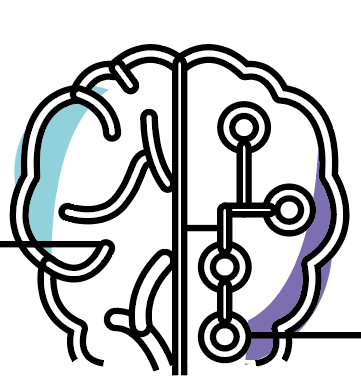Internships, mentors & tutors
Find below the internship and mentoring opportunities available for the year 2024-2025 :

Applied ecological and evolutionary sciences
Available internships
- Evolution of Tetranychus evansi traits in coinfections
- Eco-evolutionary range dynamics in a changing world
- Resilience and long-term trends in vegetation dynamics of global drylands
For consultation
- The ecosystem service bundle viewed as an interaction network
- Adaptive management of a large carnivore with Bayesian forecasting and state-space models
- Understanding spatio-temporal dynamics at large scales using artificial intelligence: applications to bycatch dynamics in tropical pelagic fisheries.
- Multiple infections and evolution of the rice yellow mottle virus (RYMV) in Burkina Faso. (Also available in the Plants section)
- Understanding metacommunity dynamics in Mediterranean vernal pools
CHEMISTRY FOR HEALTHCARE, PROTECTION & NUTRITION
Available internships
- Bioprinting of a vascularized scaffolds for nerve tissue engineering - Description
- Gene activated matrix for cartilage repair - Description
- Novel dynamic hydrogels by dual crosslinking of modified biopolymers for sustained drug release in cancer treatment - Description
- Development of novel molecular targeted probes for profiling metalloproteases activities by MALDI-mass spectrometry in synovial fluid
- Mono- and multivalent iminosugar-based a-amino acids as new organocatalysts
- Activity-based probes targeting metalloproteases: toward the profiling of these enzymes in vivo?
- Electrospun Fiber-Based Membrane Condenser for Atmospheric Water Recovery
- Mono-and multivalent iminosugar-based a-amino acids as new organocatalysts
- Nanothermometers for intracellular temperature measurements
- Structural Elucidation of Siderophores from Bacteria of the genus Achromobacter
For consultation :
- Preparation of nanocrystals and nanocapsules of organic room temperature phosphorescent luminophores for biological applications.
- MultifunctiOnal NanOparticles for microGlia Modulation
- Activity-based probes targeting metalloproteases: toward the profiling of these enzymes in vivo?
- BIOSOURCED ANTIOXIDANTS FROM LIGNIN


Comparative Politics and Public Policy
Earth and water under global change
Available internships
- Benefits and risks of treated wastewater storage for irrigation
- Focus on Persistent, Mobile and Toxic chemicals (PM/PMT): from water resource to human exposure
- Evaluation of Future Land Use Scenariosfor GroundwaterProtection and Territorial Sustainable Development
- Agrohydrological infrastructures management for Water conservation
- Predicting agricultural water use at territorial scale - CanRemote Sensing help identify management rules?
- Modeling reactive transport processes in pore network models for karst applications
- Heat transport processes in fracture-matrix system under stress conditions
For consultation
- Sensitivity of urban hydrological modeling to land-use mapping and very fine-scale precipitation variability
- Determination of hydrodynamic parameters of complex aquifers from spring hydrographs
- Method development for detecting a phytosanitary vitamin K antagonist molecule: Brodifacoum in three compartments of a mangrove ecosystem
- Improving the robustness of Hydrical Models under Changing Climate Conditions
- Large-scale hydrodynamic modelling of the UPPER Mekong Delta
- Production of available water content maps from existing soil properties datasets using pedotransfer models - application to spatial crop modeling
- Targeted biochar amendments for agricultural water quality improvement: what is the contribution of pesticide degradation mechanisms?
- Understanding shifting patterns of water use for irrigation in Prey Veng Province, Cambodia
- Management of groundwater and its salinity among stakeholders in deltas: application to Sine Saloum, Senegal
- Fluid migration in sedimentary context as a proxy for basin evolution: implications on resources, reservoirs and storage
- Impact of the hydrological cycle in the corridors of altered rocks of the Grands Causses region based on GNSS and InSAR measurements.


eco-epidemiology of emerging diseases
Available internships

Management and Sustainable transition
available internships
Plant and microbiological sciences for agro-environment
Available internships
For consultation
- How do co-infections affect the epidemiological dynamics of two strains of the plum pox virus? (see Poster)
- Improving the efficiency of biocontrol agent in the context of global change
- Modeling the morphodynamic of inflorescence development in rice
- Multiple infections and evolution of the rice yellow mottle virus (RYMV) in Burkina Faso
(Also available in the Ecology course) - Role of cell wall in plant metal nutrition


Modeling Biological and environmental systems
Available internships
- Contribution of Automatic Control to Epidemiology - Description
- From the structure of sponges to the physics of granular media - Description
- Measurements and simulations of a swimming bacterium trapped in optical tweezers
- Langevin dynamic simulations of the energy landscape of rotary molecular motors
- Biophysical modeling of the auto-assembly driving bacterial DNA segregation
- Mechano-Biology of Tree Growth
For consultation
- Physics Informed Machine Learning for lake pollution forecast (see Poster)
- Exploration of qualitative trajectories for robust validation of ecosystem modeling and development of a numerical tool (see Poster)
- Modeling growth and death processes of populations (see Poster)
- Langevin dynamic simulations of the energy landscape of rotary molecular motors
- Theoretical modelling of rotating respiratory saliva dumbbells ( see Poster)
- Modeling axonal trafficking and protein synthesis
- Capture of nanoplastics with nanocellulose (see Poster)
- Red blood cell dynamics under flow. From the mechanics of single cells to blood rheology
- Modeling ribosome motion during genetic translation
- Mechanical characterization of skull base tumors
- Skull base robot-assisted indentation to identify force at break
- Bacterial Flagellar Motor
Sciences for human health
Available internships
- Furanic fatty acids, a new key player in the diet for ageing well?
- Muscle dysfunction in patients with chronic kidney disease
- Role of proteins involved in epithelial integrity and polarity, regulated by (de)phosphorylation by Syk or PTPN13, in mammary tumor invasion
- Response to spinal cord injury and effects induced by CSF1R inhibition after spinal injury: role of age and gender.
- Targeting the collagen receptor DDR1 to reverse immune evasion and therapeutic resistance in colorectal cancer
- Towards the development of a human cellular model mimicking diaphragmatic dysfunction induced by mechanical ventilation
For consultation
- Controlling the metabolic activity of extracellular vesicles secreted by colorectal cancer cells
- scMel - Single-cell quantitative phospho-proteomic analysis of cellular heterogeneity to predict response of metastatic melanoma to MAPK inhibitors.
- Identifying the molecular and cellular mechanisms involved in the health effects of furanic fatty acids
- Role of nestin in motor and cellular response after spinal cord injury
- Study of arbovirus neurovirulence. One Health approaches
- Understanding the molecular mechanisms underlying neurodevelopmental diseases
- Epigenetic Regulation of Endogenous retrovirus in liver, impact on liver tumorigenesis
- Inter-organ communications during cancer-associated cachexia
- New effectors of cell competition during development and cancer
- Molecular and genetic basis of mutualism between yeasts and insect pollinators
- Targeting Collagen receptor DDR1 activity in colorectal cancer to reduce tumor progression, resistance and immune exclusion
- FLT3 and FLT3 alternative splice variants in pathophysiology of chronic pain
- Cytoskeletal signaling and dynamics
- Microfluidic approach of erythrocytes transport in diabetic retinopathy


PHOTONIC & ELECTRONIC SENSORS FOR ENVIRONMENT AND HEALTH
Available internships
- UHF RFID Anisotropic Magnetoresistance Sensor For Human Motion Monitoring
- Powerful structured THz source based on original photoconductive antennas based on III-V technologies applied to agronomy and environment monitoring
- Optical tweezers for biomedical applications based on a structured photonics-based source for nano-crystal manipulation
- Microelectromechanical systems (MEMS) for photoacoustic gas spectroccopy
- An Inkjet Printed RFID-enabled Humidity Sensor on Paper based on Biopolymer
For consultation
RESEARCH AND INNOVATION ENGINEER DIPLOMA

Mentor and tutor roles
Mentors, scientific support (M1/M2)
Researchers or teacher-researchers
Provide personalized support to their mentees throughout their two-year
Master's program:
- Assists students throughout the year with their training plans
- Provides customized subject supplements
- Offers meetings with its professional network, labs, conferences, etc.
- Supervises the Research Internship
- Helping to draw up the Personal Project in consultation with the tutor (M1)
- Help in preparing the Multidisciplinary project (M2)
If you would like to become a mentor, please send an e-mail to the head(s) of the relevant Masters’s program.
Tutors, academic support (M1)
Teacher-researchers
Provide personalized support to their mentees at
during their 1st year of the Master's program:
- Supports students throughout the year in their training project
- Helping to draw up the Personal Project in consultation with the mentor
- Follows the progress of laboratory immersion
If you would like to become a tutor, please send an e-mail to the relevant course director.